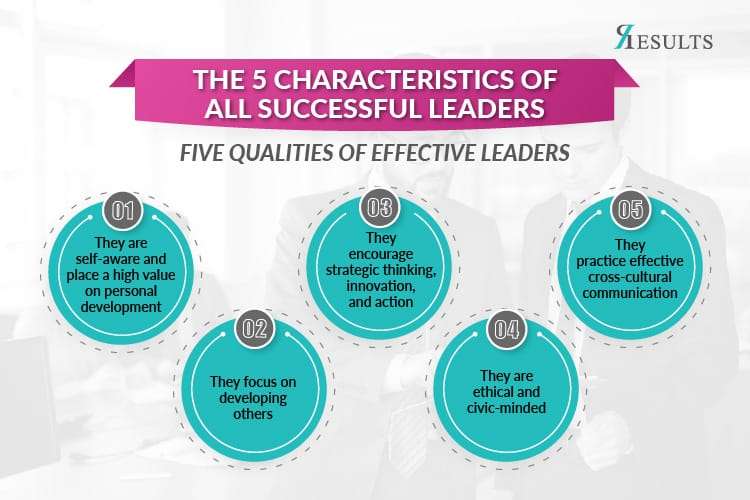The 5 Characteristics of All Successful Leaders:
The 5 Characteristics of All Successful Leaders:
Five Qualities of Effective Leaders
Successful leaders exhibit the five leadership qualities listed below in their personal and professional lives, inspiring others to take action and charting a course for future success. Strong leaders also engage in key behaviours on a regular basis to maximise the positive impact of these qualities.
1. They are self-aware and place a high value on personal development.
According to Goode, effective leaders prioritise the development of their emotional intelligence. Leaders who work to improve this trait are more adaptable, resilient, and open to feedback from others. They are also good listeners and adaptable.
2. They focus on developing others.
This leadership quality is based on the principles of situational leadership theory, which states that effective leaders adjust to whether an individual or group is ready, willing, and able to take specific action. According to Goode, delegation, coaching, and mentoring are critical tasks for situational leadership.
Make training a priority in your organization—and balance it with a culture that fosters team members’ success. “Train people well enough so they can leave, but treat them well enough so they don’t want to,” as Richard Branson famously said.
3. They encourage strategic thinking, innovation, and action.
“As a leader, you must look ahead.” “You have to think about where the organisation is going,” Goode says.
When making strategic business decisions, leaders must consider both internal organisational factors such as product roadmaps and staffing needs, as well as external factors such as government regulations and technological advancement.
4. They are ethical and civic-minded.
Strong leaders consider the ethical implications of their decisions for both their customers and their teams.
5. They practice effective cross-cultural communication.
Respected leaders can communicate clearly with individuals, business units, the entire company, and stakeholders outside the organisation. Leaders must acknowledge and respect different communication traditions in an increasingly global economy, according to Goode.
How You Can Improve:
By practising these behaviours, leaders will be able to improve the effectiveness of their communication.
Use concise language to explain everything from organisational goals to specific tasks and objectives. If someone on the team is unaware of your expectations and fails to meet them, it is your fault for failing to express those expectations. Communicate these objectives and targets on a regular basis so that everyone in the organisation understands what you and they are working toward.

